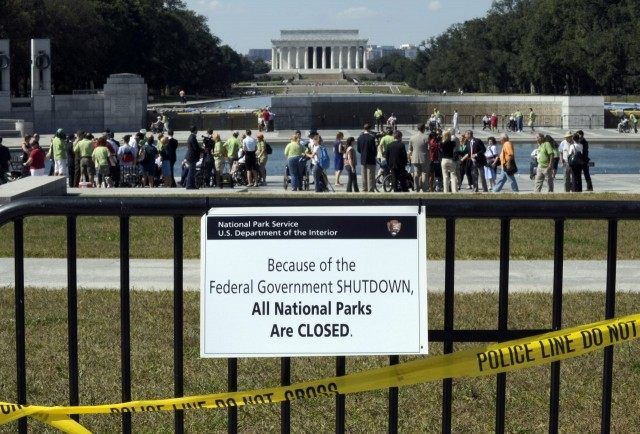Speaker of the House Paul Ryan (R-WI) is coming under withering criticism from conservatives for passing a massive new budget that funds the government through next September–and avoids a government “shutdown.”
The best that can be said in Ryan’s defense is that the Senate had already given the game away. When Majority Leader Sen. Mitch McConnell (R-KY) promised not to shut down the government, the GOP lost any leverage it might have had.
Republicans are terrified of shutting down the government because they assume, incorrectly, that the public will blame them, and punish them at the polls. The example that is always held up is 1995-6, when a Republican-led Congress shut down the government–and produced a balanced budget, but lost the presidential race that followed. Though the 2013 shutdown was followed by huge wins in the 2014 midterms, the lesson remains firmly entrenched.
The real problem is that word: “shutdown.” Framing is everything in political debates, and “shutdown” is a killer. It implies that Republicans are stopping something big that is already in motion.
The truth is that much of the government stays open even during a shutdown. Moreover, government cannot start anything until funds have been appropriated. It would be more accurate to describe a government shutdown as a failure to re-start the government.
Some employers like to show employees just how much taxes cost them by paying them in hard cash, then taking back all of the money that must go to payroll taxes and other government mandates.
With that in mind, here is a modest proposal: Make the last day of September, the last day of the fiscal year, a federal holiday. Heck–have a whole federal week.
Then “start the government back up” on October 1. See how quickly the budget debate shifts.

COMMENTS
Please let us know if you're having issues with commenting.